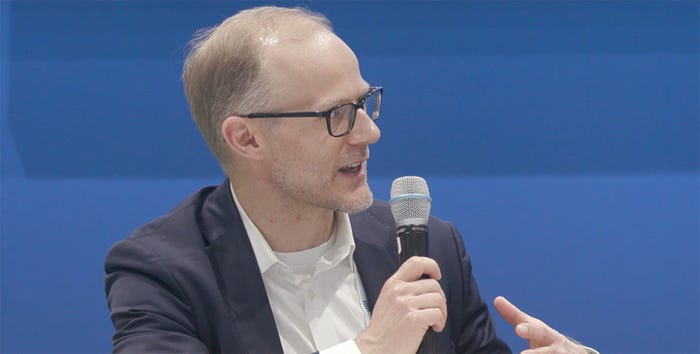Continuous Biomanufacturing for Increasing Access to BiologicsContinuous Biomanufacturing for Increasing Access to Biologics
July 31, 2024

Jon Gunther, vice president of business development, Just–Evotec Biologics
Gunther emphasized that although the biopharmaceutical industry should be proud of recent efforts to improve access to biologics, many patient populations remain underserved. The average price per day for one dose of a biologic is still ~22× higher than it is for a comparable small-molecule drug, limiting the number of people who can afford treatment. Only 20% of biologics are sold in markets outside of the United States, Europe, and Canada, indicating further problems with global access. And novel treatments still must be developed for the ~7000 rare-disease indications that have significant unmet medical needs.
Continuous biomanufacturing (CB) could be the production paradigm that enables monoclonal antibodies (mAbs) and other recombinant proteins to reach global patient populations, Gunther said. His company’s CB platform is designed to increase manufacturing agility, diminish processing and regulatory risks, and decrease manufacturing costs. Incorporating a perfusion-mode bioreactor for continuous cell culture has enabled Just–Evotec to intensify unit operations significantly, reducing the company’s facility footprint and cleanroom requirements and thereby decreasing capital expenditure (CapEx) by two-thirds compared with traditional facility costs. Such advantages have reduced the company’s cost of goods sold (CoGS) by as much as 75%.
A key enabling technology is the proprietary J.CHO cell line, a Chinese hamster ovary (CHO)-K1 host that is genetically engineered for glutamine synthetase (GS) knock-out. The line features specific productivities of >50 pg of protein/cell/day with target viable cell densities (VCDs) of 60–100 million cells/mL of culture. Transposon-based expression vectors with strong promoter sequences enable stable integration and high expression of genes of interest (GoI) into the cell line. Just–Evotec has developed cost-effective, chemically defined media for perfusion culture of the line, and J.CHO technology exhibits good scalability in bioreactors of 3–1000 L.
Gunther presented data comparing the productivity of a traditional 500-L fed-batch process run over 14 days with that of Just–Evotec’s 15-day, 500-L continuous perfusion process. Over eight days of harvest, the perfusion process generated 3–5 g of protein/L/day — equivalent to 40–60 g/L in fed-batch terms. Gunther reminded attendees that titers from even highly productive fed-batch processes reach about 10 g/L. Ultimately, the CB process exhibited about 16× the productivity of a traditional fed-batch process.
The 15-day, 500-L perfusion culture in Gunther’s example represented a process developed for early clinical manufacturing, with a run yielding 5–8 kg of material. As a candidate advances into late-stage trials, perfusion can be extended to 25 days for scale-up to 1000 L. On average, such a process generates 35–40 kg of protein product. Further scale-up entails cloning a 25-day perfusion process. For instance, Just–Evotec can produce >2000 kg of protein per year for a customer by running multiple perfusion reactors in one of its J.POD facilities. By extending and replicating CB processes, the company can help drug developers to transition smoothly from early phase clinical studies into late-stage trials and finally commercialization.
Gunther added that J.POD facilities are designed to enhance manufacturing agility. Traditional biomanufacturing plants take around four years to build and bring online. Just–Evotec’s site in Toulouse, France, was constructed in about a year and a half — about 65% less time. The new site is expected to begin operations in the second half of 2024. J.POD facility construction also costs 75% less than does a conventional build: US$250 million compared with $800 million to
$1 billion. The reproducibility of the J.POD design also helps to reduce operational and regulatory risks. For instance, the company ensures continuity by using the same design concept at its facilities in Toulouse and Redmond, WA.
Gunther concluded his presentation by affirming the feasibility of CB. Just–Evotec already has worked with customers to produce mAbs, bispecific and multispecific antibodies, and Fc fusion proteins, with more than
20 investigational new drug (IND) applications submitted in the United States, United Kingdom, and Canada. Of the CB platform’s effectiveness Gunther said, “This isn’t just conceptual. We have been doing this for multiple years.” He expressed gratitude for the company’s successful collaborations with multiple universities, government agencies, and drug companies. Of particular note were recently established partnerships with the US Department of Defense (US DoD) and biosimilar developer Sandoz.
Watch Online
See all presentations online from BPI Theater at BIO 2024.
You May Also Like






